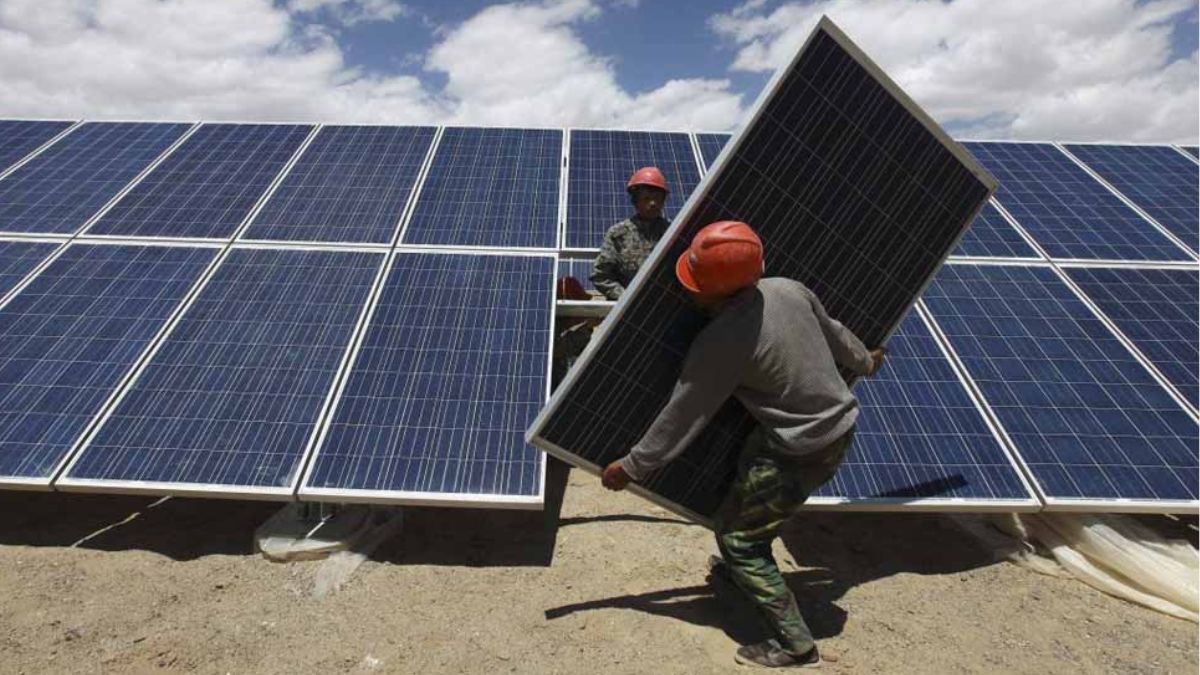IREDA plans ₹3,000 crore fundraising for upgrading India’s renewable energy push
 Representational image
Representational image
India is seeing a rapid uptick in renewable energy. The Ministry of New and Renewable Energy last week announced the achievement of 50 per cent energy production from non-fossil fuel sources.
Out of 484.8GW of total installed capacity, 242.8GW is now based on renewable or low-carbon sources.
Amid this push, the state-owned Indian Renewable Energy Development Agency (IREDA) plans to raise additional ₹3,000 crore in equity funding via a qualified institutional placement (QIP) to augment its borrowing and lending capabilities. This will be in addition to ₹2,005 crore it has raised via a QIP earlier this month.
“We have done one tranche. Another tranche, which we are planning, may enable around ₹3,000 crore. That will give us further borrowing power. We will try to optimise our equity and our borrowing so that we can optimise lending and overall minimise the borrowing cost,” Pradip Kumar Das, the company’s chairman and managing director, told THE WEEK.
In a major policy boost recently, the Central Board of Direct Taxes notified IREDA bonds as ‘long-term specified assets’ under Section 54EC of the Income-tax Act. This enables investors to claim capital gains tax exemption.
This will enable IREDA to further raise around ₹4,000-5,000 crore via bonds, “in time to come”, Das said. He, however, didn’t share the exact time frame for that.
IREDA has seen strong growth in loan sanctions and disbursals as renewable energy projects gain traction. In the quarter ended June 30, loan sanctions rose 29 per cent from a year ago to ₹11,740 crore, while disbursements were up 31 per cent to ₹6,981 crore.
Amid this strong institutional demand, IREDA is going slow on its retail plans.
The company had earlier disclosed plans to start a retail arm that would focus on retail projects like rooftop solar as well as other emerging B2C segments in the Renewable energy space.
“We have taken a pause in retail activity,” Das said.
IREDA is, in turn, focusing on its newly set-up subsidiary in the GIFT City in Gujarat. “We want to first start full-fledged operations out of GIFT City. We will fund domestic projects by domestic developers, and if the Indian developer is developing overseas projects, we will fund that,” said Das.
One reason for going slow on retail is the troubles at Gensol Engineering.
The National Company Law Tribunal (NCLT) had directed the initiation of insolvency proceedings against debt-ridden Gensol Engineering and Gensol EV lease following petitions by IREDA. Gensol had acted as a financier and lessor of vehicles to the all-electric ride-hailing company Blue Smart.
Due to Gensol and one other account, IREDA has seen its non-performing assets rise sharply in the June quarter. Its net NPAs rose to 2.06 per cent in April-June from 1.35 per cent in the previous quarter. Its outstanding loan book stood at ₹79,941 crore as of June 30.
Das, however, is not too worried about the Gensol account and feels it should not take time to turn it around once the fleet of EVs is put back into service. The timeline of that will depend on the NCLT process.
“The business model for which we have lent is absolutely lucrative. We lent for five years against the car’s life of 8-10 years. On some of the loans, we have received three-year repayments and on some, two-year repayments,” said Das.
He remained confident in the company’s strong balance sheet, pointing out that IREDA’s cumulative write-offs in the past 38 years have been only ₹135 crore, while it had disbursed close to ₹1.63 lakh crore worth of loans.
Business